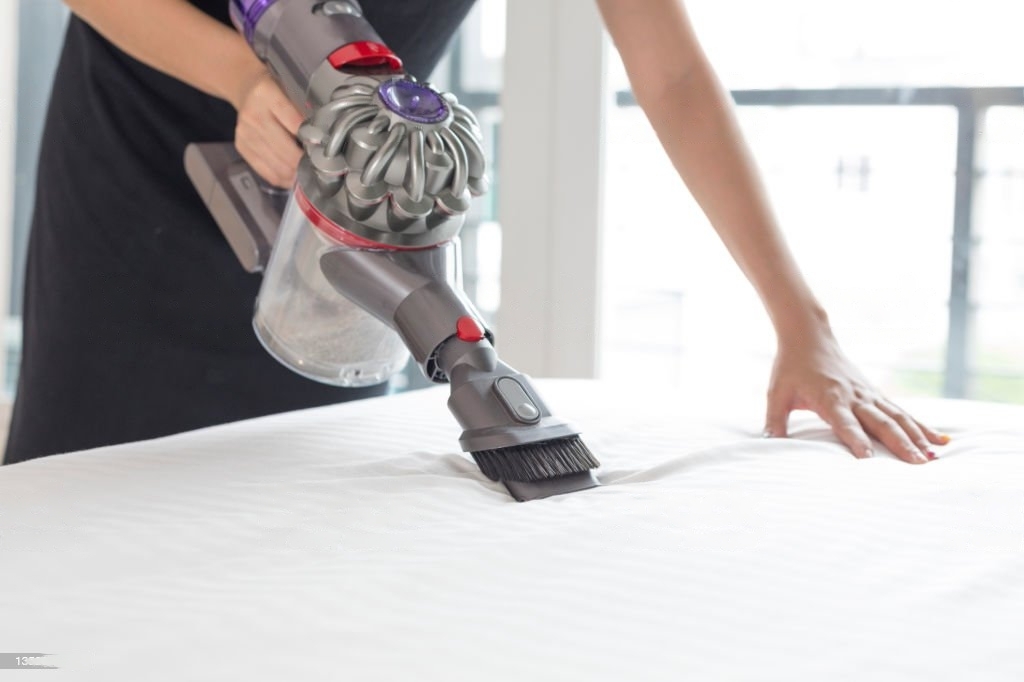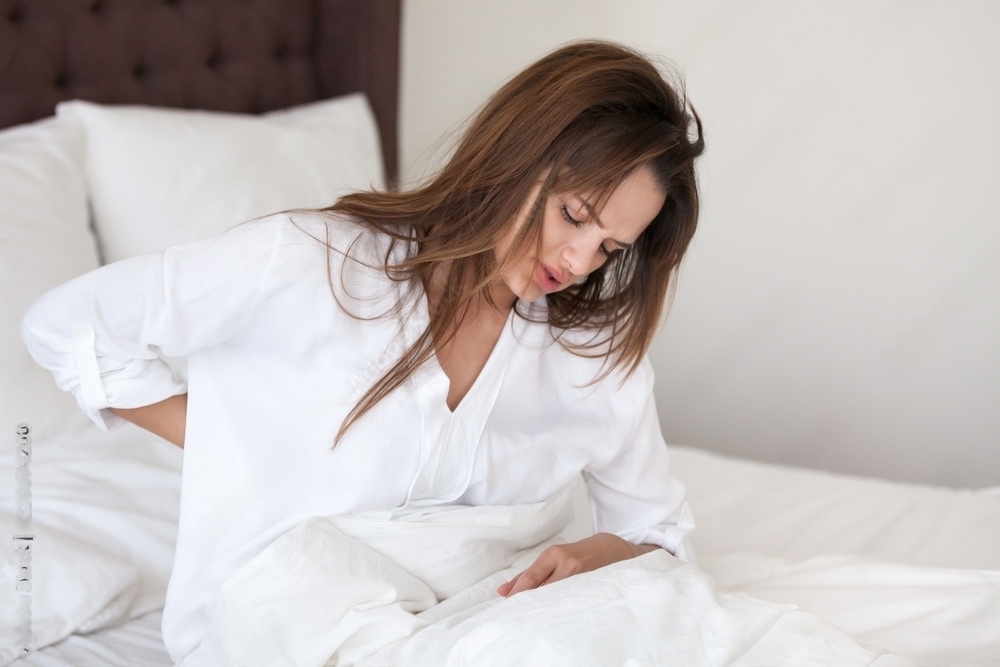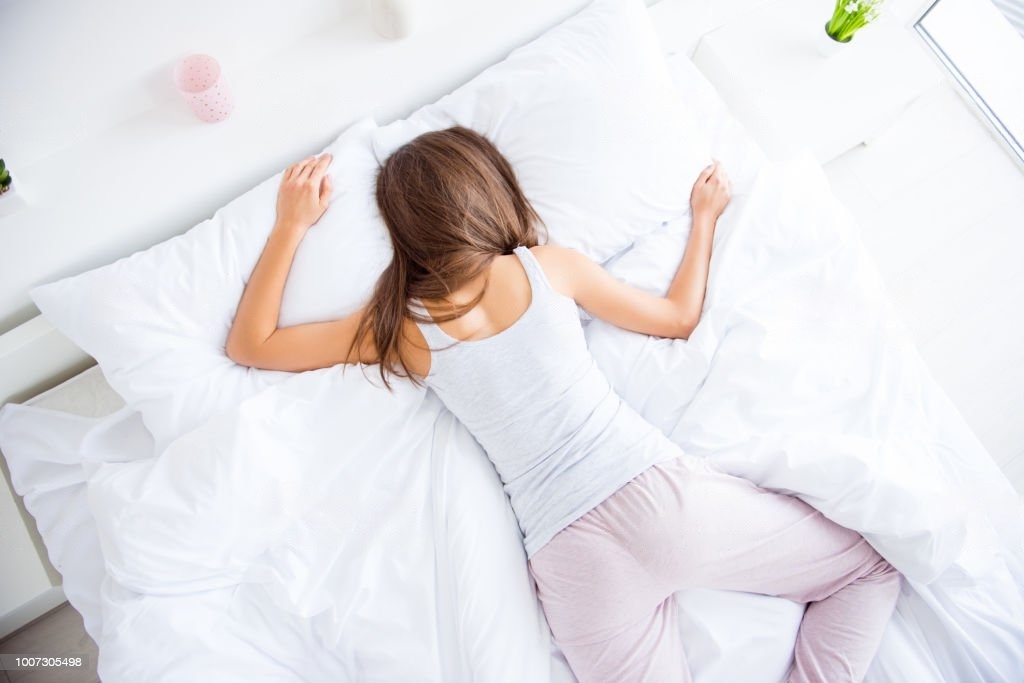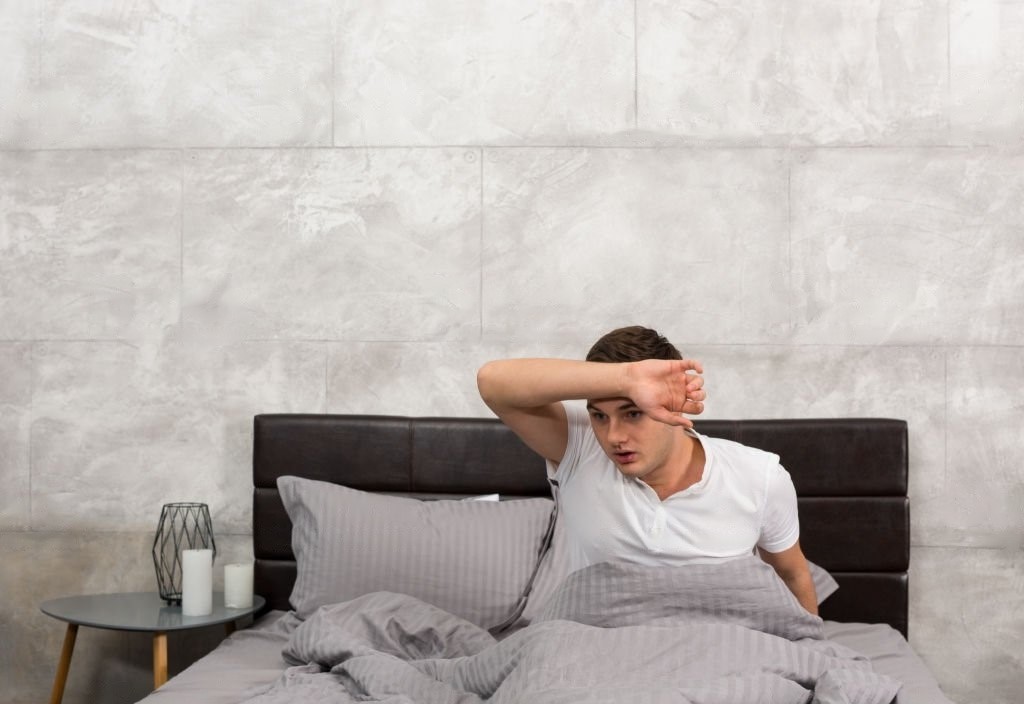At the end of a long day, you just want to get into bed and relax your tired body. But there’s nothing more frustrating than waking up in the middle of the night drenched in sweat, feeling uncomfortable and sticky. This is a common issue that can be caused by a variety of factors. Generally the primary reason for what causes night sweats is the material your mattress is made up of. Memory foam and other synthetic materials trap more heat, which can cause your body temperature to rise during sleep. This is especially true for people who tend to sleep hot or have a naturally higher body temperature.
This blog is for you if you find yourself sweating excessively during sleep. We’ll look at why some mattresses may cause you to sweat more while sleeping and discuss what you can do to combat this problem.
What Causes Night Sweats?
While sweating is a normal bodily function as it helps regulate body temperature, excessive sweating during sleep can be disruptive and cause discomfort. There are several potential causes of night sweats, including:
1) Mattress Material
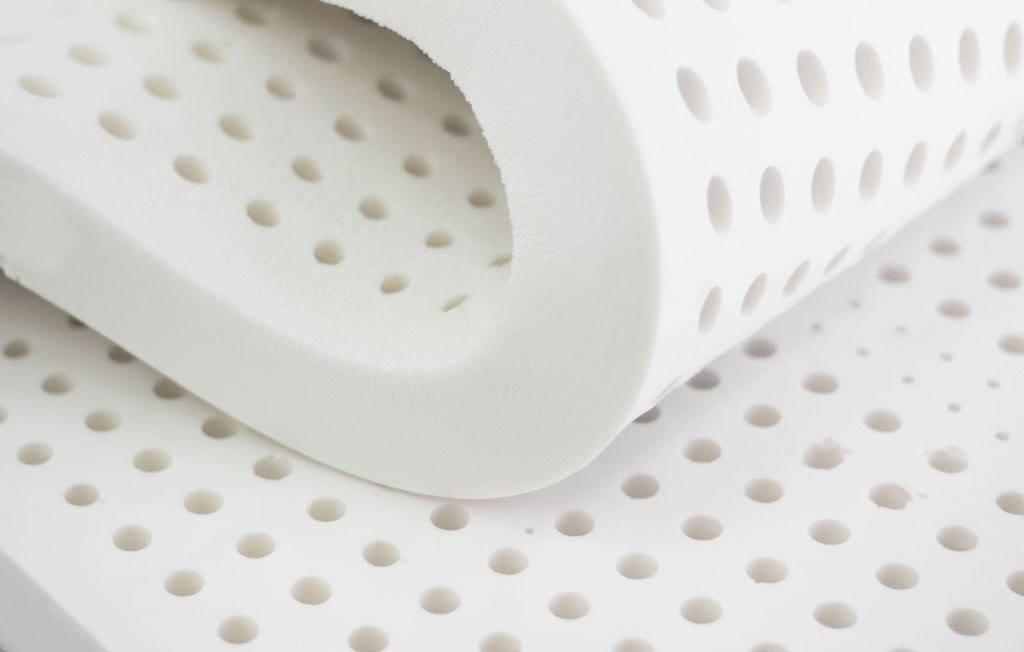
As said earlier, mattresses made of synthetic materials, such as polyurethane foam, can trap heat and make it difficult for your body to regulate its temperature. This can lead to excessive sweating during the night.
Memory foam mattresses, in particular, have been known to retain heat and cause discomfort. Made from purely synthetic materials, these mattresses can’t regulate temperature or absorb the moisture that comes from excessive sweating at night.
In fact, these mattresses need body heat in order to mould to your body shape and provide support. So, if you’re sleeping on a synthetic mattress, it may not be the best bedding for you if you experience night sweats.
2) Room Temperature and Humidity
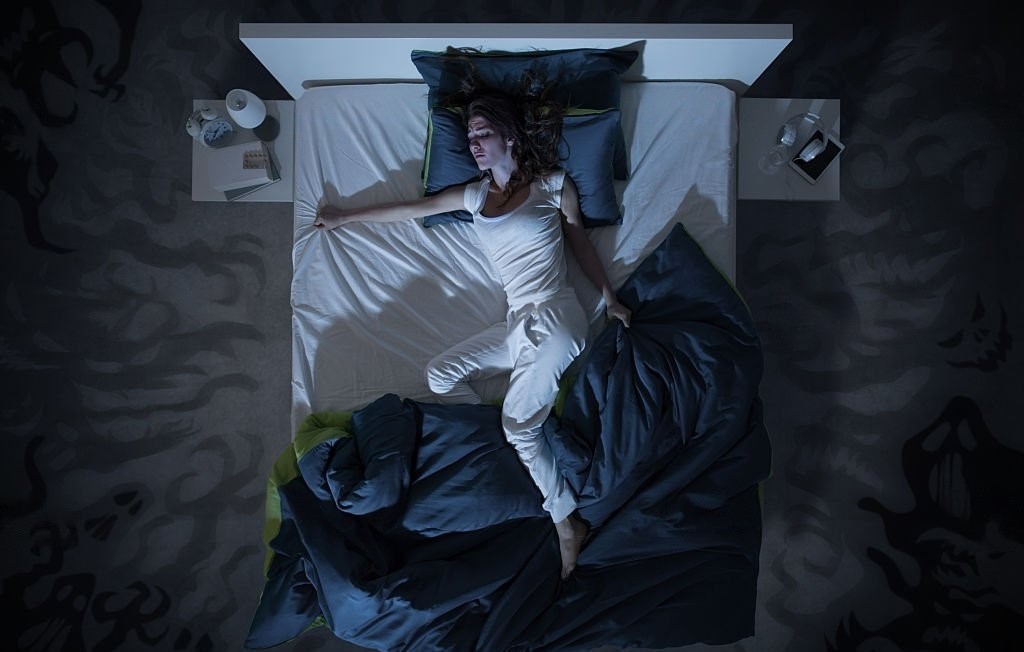
One of the most common causes of sweating while sleeping is a warm or hot environment. It’s normal to sweat in your sleep if your bedroom is warm or if you sleep under lots of blankets. Your body goes through normal temperature changes while you sleep. During certain phases, the body temperature may go up, which can lead to excess perspiration.
3) Medications
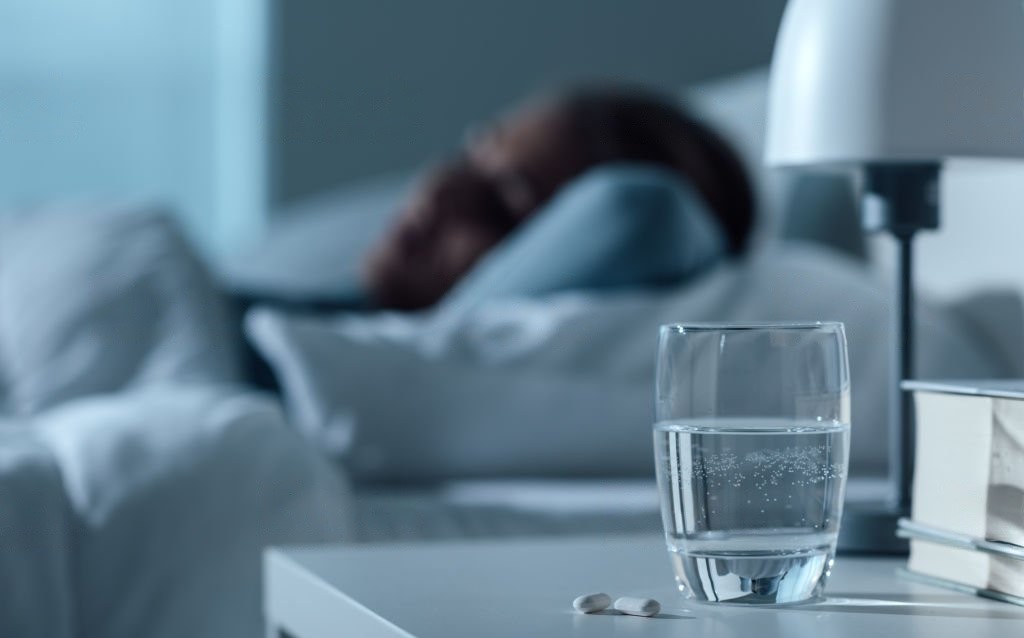
Taking certain medications can lead to sweating at night while sleeping. Antidepressant medications are a common type of drug that can lead to excessive night sweats. Other psychiatric drugs are also known to aggravate night sweats. Medicines taken to lower fever, such as aspirin, can sometimes lead to sweating.
4) Hormonal Changes
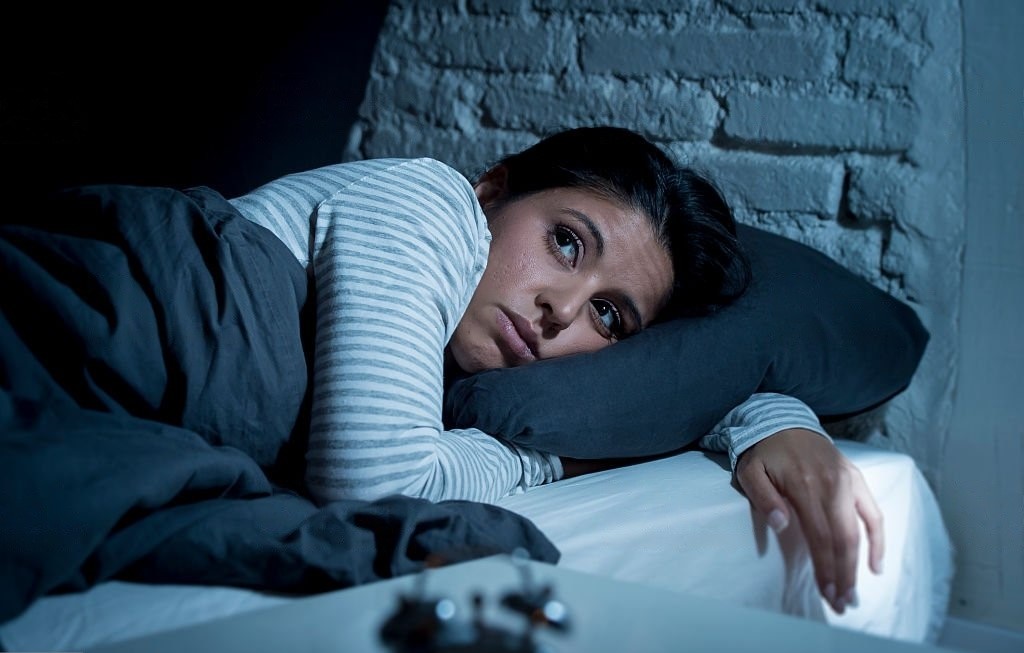
Also changes in the endocrine system, which controls hormone levels in the body, can lead to hyperactive sweating. Examples of hormone problems with links to night sweats include diabetes and elevated blood sugar. The part of the brain that regulates body temperature is known as the hypothalamus. Hypothalamic dysfunction may be an underlying issue related to hormone imbalances and night sweats.
5) Menopause
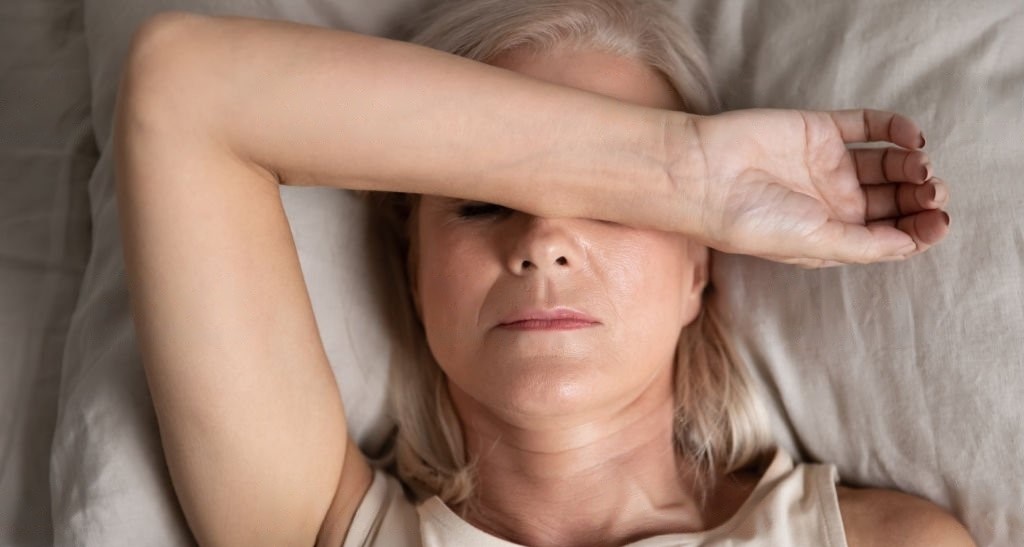
Menopause is when women permanently stop having their period. During this time, significant changes in the body’s production of the hormones oestrogen and progesterone are believed to be an important driver of heated sweats.
6) Infections
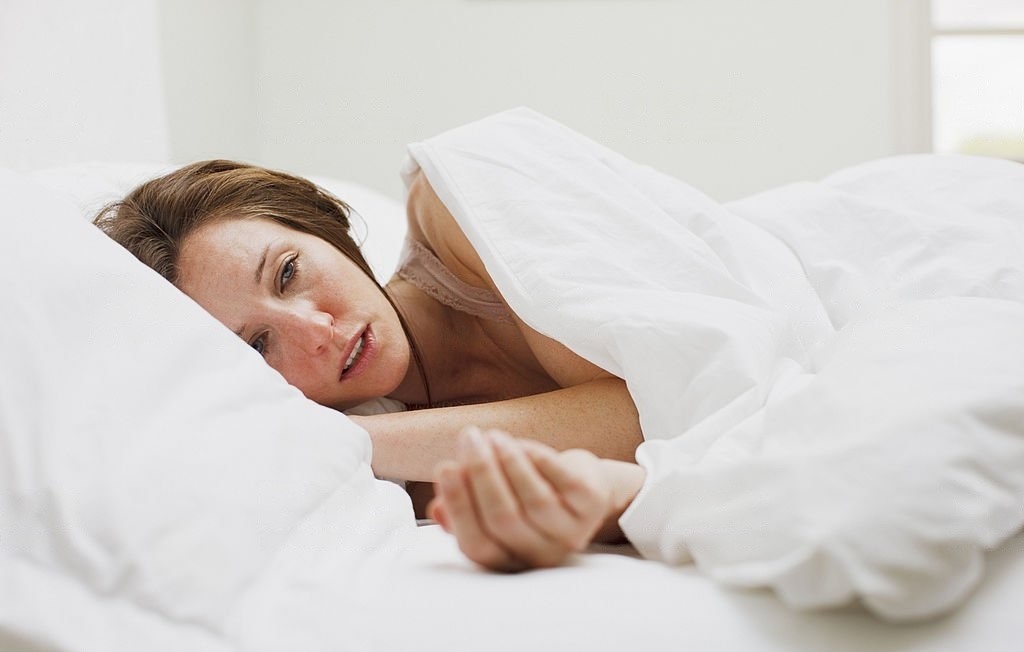
Any infection that causes a fever can lead to night sweats whether it’s the flu or a bacterial infection like an abscess. Some people with underlying health conditions like tuberculosis may also experience night sweats.
7) Stress & Anxiety
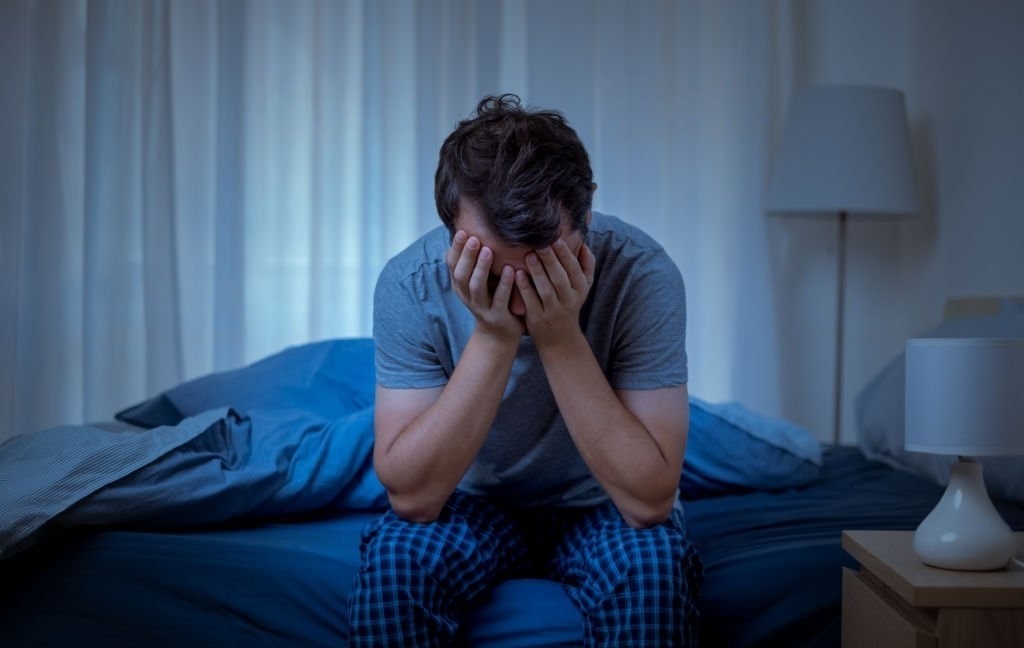
If you have nightmares or general anxiety, you may have panic attacks while you’re sleeping which can lead to sweating. If you have bad dreams often, especially if you have post-traumatic stress disorder (PTSD), it may increase your chances of overactive sweating.
6 Practical Solutions to Prevent Sweating While Sleeping
We are not exaggerating when we say night sweats can be an uncomfortable experience! It can cause a lack of sleep, difficulty falling asleep, and can also affect the sleep quality. The good news is that there are several practical solutions to prevent sweating while sleeping. These solutions range from simple changes in lifestyle to products that can help to regulate body temperature. From bedding materials to clothing choices, these tips will help you to stay cool and comfortable throughout the night.
1) Choose the Right Mattress Material
Sometimes the mattress we are sleeping on collects heat throughout the night. Try investing in the best mattress for night sweats, as these are designed to help you sleep much cooler at night. Mattresses made of breathable materials, such as a cotton or latex mattress can help wick away moisture.
2) Control Room Temperature & Humidity
This one seems pretty self- explanatory, if you find that you are waking up in sweats, try turning down the thermostat before going to bed.
3) Increase Air Circulation
Try opening your bedroom window, this will allow for better air flow and circulation. This option is great for those who aren’t getting enough relief from turning down the thermostat, or if the fan is just too loud.
4) Sleep in Lightweight Clothing
You may even opt to try and sleep in no clothing at all. Though many experts suggest wearing loosely fitting and breathable fabrics, such as cotton or silk instead of heavy pyjamas.
5) Use Less Bedding
Try switching out a heavy comforter for a lightweight blanket or some cool cotton sheets. This will allow body heat to move more freely, instead of getting trapped and it will help in the prevention of night sweats.
6) Avoid Caffeine & Alcohol Before Bed
While caffeine has been known to be relatively harmless, it is still a stimulant and has been known to increase the night sweats. Additionally, alcohol has been known to cause an increase in your body temperature. It is best to avoid both at least one hour before going to bed.
Conclusion
Sweating while sleeping can have a detrimental effect on your overall quality of life. When you are too hot to sleep well, you feel tired during the day. Sleep deprivation leads to trouble concentrating, brain fogging, and exhaustion.
Mattress material is one of the major factors of what causes night sweats, but there are other factors like room temperature, medications, stress, and hormonal changes that can also contribute.
However, by taking steps to regulate your body temperature and maintain a comfortable sleeping environment, you can effectively manage night sweats and improve the quality of your sleep. With the right choices, you can have a better and more restful sleep.
FAQs
Mattress protectors are typically made from materials that are not breathable, such as plastic or vinyl. These materials can trap heat and moisture, making it difficult for your body to cool down. However, there are also mattress protectors made from breathable materials such as cotton or Tencel, which can help keep you cool and comfortable.
There are a few reasons why your mattress may be feeling hot. One reason could be that your mattress is not designed with breathable materials, causing heat to build up within the mattress. Another reason could be that your room temperature is too high, causing your body heat to be retained within the mattress.
Additionally, if you are using a memory foam mattress, the material can trap heat and make you feel warmer. To alleviate this, consider using a mattress pad or cover that is designed to wick away moisture and promote air flow.
Memory foam is not as breathable as other types of mattress materials as it can trap heat and cause a person to feel hot and sweaty. Additionally, memory foam is a synthetic material and synthetic materials are known for trapping heat.
- A Mattress can make you sweat due to lack of breathability.
- Lack of support can make your body work harder and result in increased body temperature and sweating.
- Synthetic materials can also retain heat and cause sweating.




